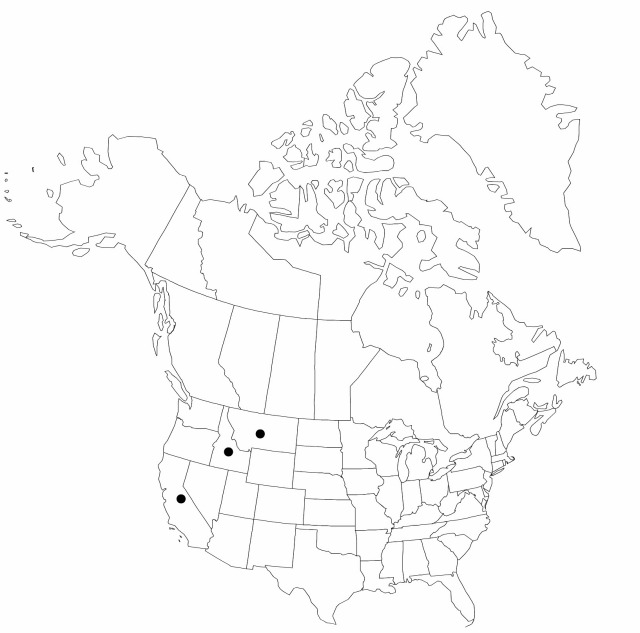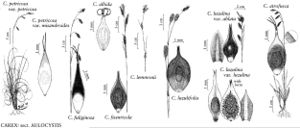Carex luzulifolia
in S. Watson, Bot. California 2: 250. 1880.
Plants densely or loosely cespitose; rhizomes short, thick. Culms to 100 cm. Leaves: blades 5–20 mm wide. Inflorescences with 4–6 spikes; peduncles of proximal spikes exserted more than 1 cm; proximal bracts with blade (13–) 17–35(–55) mm, sheaths conspicuously expanded to mouth, 21–35(–42) mm, mouth with wide purple band, usually shallowly U-shaped, greater than 2 mm wide. Lateral spikes pistillate, purple to dark brown, pendent, (17–)19–30 × 6-9 mm. Terminal spike staminate, ± erect or, occasionally, pendent, 9–19 × 4.5–9 mm. Pistillate scales glossy dark purple with narrow hyaline margins,often gold adaxially, usually ovate, apex obtuse to long-tapered (rarely ciliate-awned), glabrous. Staminate scales dark reddish purple with pale midvein and narrow, scarious margins, ovate to elliptic, 3.2–4.1 × 1–2 mm, apex usually obtuse, occasionally short-awned. Anthers (1.8–)2.4–4 mm. Perigynia ascending, dark purple, veins indistinct, elliptic or ovate to broadly ovate, 4–5.3 × 1.7–2.5 mm, with flat margins more than 1/2 mature achene width, glabrous; beak 1–2 mm, apex dark purple to blackish, glabrous, distance from beak tip to achene apex greater than 2 mm. Achenes obovoid, 1.5–2.2 × 0.85–1.2 mm.
Phenology: Fruiting summer.
Habitat: Wet meadows
Elevation: 2100–2800 m
Distribution

Calif., Idaho, Mont.
Discussion
Selected References
None.
